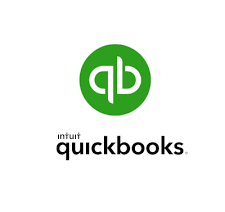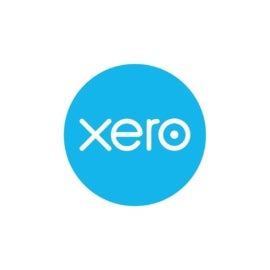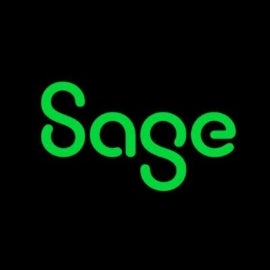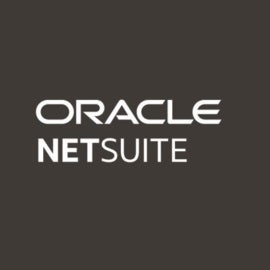- Best for accounting reports: QuickBooks Online
- Best free accounting tool: Wave Accounting
- Best for document handling: Xero
- Best for relationship management: Zoho Books
- Best desktop-based software: Sage 50 Accounting
- Best for scaling and enterprise needs: NetSuite
FreshBooks is a popular accounting and invoicing software for small businesses. Many small businesses love FreshBooks for its excellent invoicing features, tools like time tracking and the modern, easy-to-learn user interface. Still, FreshBooks doesn’t work for everyone. It comes with potentially high costs and limits on the clients you can bill ― and it may not have all the features you want in accounting software.
So if FreshBooks isn’t quite right for your business, you might prefer one of the best alternatives to FreshBooks instead.
Top FreshBooks competitors and alternatives: Comparison table
| Starting price | Accounting automation | Inventory management | 24/7 support option | ||
|---|---|---|---|---|---|
| QuickBooks Online | $35/mo. | Yes | Yes | Yes | |
| Wave Accounting | $0/mo. | With paid plan only | No | No | |
| Xero | $20/mo. | No | Yes | Yes | |
| Zoho Books | $0/mo. | Yes | Yes | No | |
| Sage 50 Accounting | $595/yr. | Yes | Yes | Yes | |
| NetSuite | Custom | Yes | No | Yes |
Plan pricing and details up to date as of 2/22/2024.
Featured Partners
Top FreshBooks competitors
QuickBooks Online: Best for accounting reports

Our star rating: 4.6 out of 5
QuickBooks Online has a lot in common with FreshBooks ― from the similar name to their cloud-based accounting platforms. But compared to FreshBooks, QuickBooks Online has much more powerful reporting features. All QuickBooks plans give you basic reports like profit and loss statements and balance sheets. Higher-tier plans give you more specialized analysis, like inventory reports and profitability reports.
Plus, power QuickBooks users can create customized reports and display them on attractive dashboards. Or you can sync your QuickBooks data with Excel for even more power and customization. It all adds up to an accounting software that makes it wonderfully easy to view, manage, and make decisions using your accounting data.
Pricing
QuickBooks Online has four different plans, from basic accounting to enterprise-level tools:
- Simple Start costs $35 per month for 1 user.
- Essentials costs $65 per month for 3 users and adds bill management.
- Plus costs $99 per month for 5 users and includes inventory management.
- Advanced costs $235 per month for 25 users and adds automation, 24/7 support and more.
You can also add bookkeeping services for an additional cost.
Features
- Unlimited estimates and conversions to invoices.
- Tax management, including tax deductions, sales tax, and 1099s.
- Mileage and time tracking.
- Job costing and project reporting.
Pros
- Free guided setup with a QuickBooks expert.
- One-click tax filing for 1099s.
- Broad spectrum of accounting tools.
Cons
- High starting prices for plans.
- Complaints of poor customer support.
- Sudden price increases.
For more information, read the full Quickbooks review.
Wave Accounting: Best free accounting tool

Our star rating: 4 out of 5
If accounting software costs too much for your taste, Wave Accounting offers an excellent free alternative to FreshBooks. Unlike most popular accounting software, Wave offers an entirely free plan for accounting and invoicing. Even better, that plan don’t limit the number of invoices you can send or the number of clients you can charge per month.
Wave does charge for some extra features: payments, mobile receipt capture, payroll and expert advice. But you can add these à la carte features as you need ― meaning you don’t pay for tools you don’t need. Alternatively, you can scale up to Wave’s paid plan, Wave Pro, which includes mobile receipt scanning and unlimited users.
Plus, even if you do pay for add-ons, you may find that Wave costs less than FreshBooks and other competitors. It makes accounting tools accessible for any budget.
Pricing
Wave doesn’t charge for its essential invoicing or account software. However, with the free plan (Wave Starter), you’ll get basic features only with limits on automation and no customer service.
Wave Pro, in contrast, costs $16 a month or $170 per year. Wave Pro expands your feature set to include receipt scanning, unlimited users, automated bank transaction import and basic customer service. Wave Pro also gives you a discount on payment acceptance transaction fees.
If you want to add receipt scanning to Wave’s free plan, the tool costs $11 per month or $96 per year. You can also add a la carte features, including:
- Monthly and per-employee fee for payroll.
- Monthly or one-time fee for expert bookkeeping guidance.
Features
- Unlimited cash flow management and banking connections.
- Custom invoicing with automated reminders.
- Optional payment processing, payroll and other add-ons.
- Financial statements, tax, payroll, vendor and other reports.
Pros
- Free and unlimited accounting and invoicing plan.
- Optional paid add-ons for extra features (e.g., receipt scanning).
- Well-reviewed mobile invoicing app.
Cons
- No customer support for free customers.
- No time or mileage tracking tools.
- Few native app integrations.
For more information, read the full Wave review.
Xero: Best for document handling

Our star rating: 4.4 out of 5
If your accounting needs include lots of receipts, bills, bank statements or other documents, then take a closer look at Xero. Sure, other accounting software offers receipt capture. But often that feature is limited to a higher-tier plan or priced as an add-on. Xero, on the other hand, includes data capture through Hubdoc on all plans. Scan, email or take a photo of your document, and Xero will add that information to your accounting.
Xero also helps you manage your uploaded documents. It offers cloud file storage so you can find documents without digging through papers. You can even set up automatic backup so you never lose important document data. The highest-tier plan also lets you submit and reimburse expenses with your scanned receipts. So for document-heavy businesses, Xero may do more than FreshBooks to help you simplify and organize.
Pricing
Xero has three plans:
- Early costs $20 per month and limits you to 20 invoices.
- Growing costs $47 per month and allows for unlimited invoices.
- Established costs $80 per month and adds project tracking and expense claims.
You can also add payroll through Gusto, which costs an extra $40 per month plus $6 per person paid.
Features
- Built-in bill and receipt capture through Hubdoc.
- Expense management for spending and reimbursement.
- Project and time tracking.
- Cloud file storage for financial documents.
Pros
- Easy receipt capture on all plans.
- 24/7 customer support for all users.
- Extra accounting tools like inventory, contact and file management.
Cons
- Limits on quotes and invoices for low-tier plan.
- No native payroll options.
- No annual billing option or discount.
For more information, read the full Xero review.
Zoho Books: Best for relationship management

Our star rating: 4.7 out of 5
Like FreshBooks, most accounting software makes it easy to send invoices ― but Zoho Books goes a step further. It lets you manage incoming invoices with its excellent vendor management tools. You can set up vendor portals, where vendors can manage transactions, add invoices and even add comments to documents. In other words, vendors can take care of all their business in one place, meaning fewer emails to handle.
Zoho Books offers great customer portals too, where clients can pay invoices, view quotes and update their personal information. You can also use your customer portals to collect data, like asking for ratings and comments. Zoho Books streamlines your relationship management so you can spend more time on other accounting matters.
Pricing
Zoho Books offers six different plans, with prices from free to pretty expensive:
- Free has no monthly cost, but it limits you to 1 user and 1,000 invoices per year. Zoho’s free plan is only available to businesses with an annual revenue below $50,000 USD.
- Standard costs $15 per month and gives you 3 users and 5,000 invoices.
- Professional costs $40 per month and allows for up to 5 users.
- Premium costs $60 per month and lets you have 10 users.
- Elite costs $120 per month and adds advanced inventory control.
- Ultimate costs $240 per month and allows for up to 15 users and advanced analytics.
It costs an extra $2.50 per month to add another user on any plan.
Users can also lock in a lower price by paying annually rather than month to month.
Features
- Banking, expenses, invoicing and other key accounting features.
- Portals for customers and vendors to manage transactions.
- Automation for recurring accounting tasks.
- Project time and expense management.
Pros
- Free plan for one user and accountant.
- Many plan options for different user needs.
- Option to add more users for a low monthly fee.
Cons
- Invoice limits on lower-tier plans.
- Very expensive high-tier plans.
- No way to get 24/7 customer support.
For more information, read the full Zoho Books review.
Sage 50 Accounting: Best desktop-based software

Our star rating: 4.6 out of 5
Do you work from a rural location with spotty internet? Sage 50 is Sage’s locally installed accounting software product. While it’s connected to the cloud to offer greater accessibility and flexibility, Sage 50 is a true a desktop-first solution that gives small businesses maximum control over their localized data.
Like all of Sage’s stand-out accounting products, Sage 50 is remarkably easy to set up and use. From its user-friendly dashboard, it’s easy to tackle basic small-business accounting needs. Sage’s excellent customer education and support make it a good pick for brand-new business owners who are still learning how to balance their books and work toward building an established, profitable business.
Pricing
Sage 50 Accounting has three plans, all of which require annual subscriptions (rather than month-to-month payments):
- Pro Accounting costs $595 a year for one user.
- Premium Accounting costs $970 per year for up to five users.
- Quantum Accounting costs $1,610 per year for up to 40 users.
Features
- Unlimited invoices.
- Purchase orders and approvals.
- Expense management and bill tracking.
- Inventory management and reporting.
- Cash flow forecasting.
Pros
- Extremely scalable plans that support up to 40 users.
- Moderately priced plans with big initial discounts.
- Optional built-in payroll service (additional fee).
Cons
- Complaints of outdated user interface.
- Some customer reports of steep learning curve.
NetSuite: Best for scaling and enterprise needs

Our star rating: 4 out of 5
While FreshBooks does let you customize an enterprise plan for your business, few accounting platforms have the scalability of NetSuite. It’s an incredibly powerful enterprise accounting software that includes a core accounting platform plus optional modules for things like payroll, human resources and global business management. So whether you need just accounting or advanced extras, NetSuite can meet your needs.
Plus, NetSuite scales even further with SuiteApps ― integrations that offer more functionality. With apps for taxes, shipping, lease accounting, contract management and more, you can customize NetSuite to work for any industry. Likewise, NetSuite can accommodate multiple languages, tax laws and currencies, making it ideal for businesses expanding across the globe. If you think your business will outgrow FreshBooks, you may find a better fit with Oracle NetSuite.
Pricing
NetSuite charges an annual fee. Your business’s fee depends on what modules you want and how many users you have. You’ll need to set up a consultation to get a quote for your business.
Features
- Accounting, inventory, order and tax management.
- Adds-ons for CRM, marketing, HR and more.
- Default and custom reporting tools.
Pros
- Extensive accounting features.
- Option to add many non-accounting features.
- Ability to scale to enterprise level.
Cons
- No pricing info without a custom consultation.
- Complaints of high product costs.
- Overwhelming features and options for small businesses.
For more information, read the full NetSuite review.
Is FreshBooks worth it?
Our star rating: 4.1 out of 5
FreshBooks is a worthwhile accounting software for businesses that need a full suite of invoicing tools on top of accounting essentials. FreshBooks eliminates the need to find a separate payment processor or manually create and monitor invoices. That makes it a real time saver for freelancers and other B2B businesses.
That said, you may want to look elsewhere if you have a large number of clients, since FreshBooks limits how many clients you can bill on some plans. Likewise, FreshBooks may not be worth it if you need to add multiple users, as the costs can add up quickly.
For more information, read our full FreshBooks review.
FreshBooks pros and cons
Plenty of business owners use and rave about FreshBooks. But you’ll need to compare its pros and cons to the benefits and drawbacks of its competitors to decide if FreshBooks is a good choice for you.
FreshBooks pros
- Powerful invoicing features and customization.
- Time tracking on all plans.
- Clean, user-friendly interface.
- Multiple invoice payment options.
FreshBooks cons
- Limits on billable clients by plan.
- Lack of double-entry accounting on Lite plan.
- High cost to get additional users.
FreshBooks pricing
FreshBooks offers four plans for its accounting software:
- Lite costs $19 per month and limits you to 5 billable clients.
- Plus costs $33 per month and lets you bill up to 50 clients.
- Premium costs $60 per month and allows for unlimited billable clients.
- Select has custom pricing depending on your enterprise needs.
You can add more team members to any plan for $11 per user per month, and you can get an advanced virtual payment terminal for an extra $20 per month. You can also get Gusto Payroll as an add-on.
FreshBooks has regular sales with deep discounts (like 50% off your first free months). And you can always save 10% by choosing annual billing instead of monthly payments.
Do you need an alternative to FreshBooks?
You may need an alternative to FreshBooks if you want to add multiple team members to your accounting software without paying too much ― or if FreshBooks doesn’t have an accounting feature you need.
For more robust accounting reports, check out QuickBooks Online as an alternative. Or if you need something cheaper than FreshBooks to fit your budget, Wave Accounting’s free software may be the best choice. Xero accounting makes it easier than FreshBooks to capture and manage financial documents, while Zoho Books makes it easier to manage customer and vendor relationships. Expanding businesses may prefer alternatives like Sage Accounting for multi-currency accounting or NetSuite for enterprise-level accounting tools.
Methodology
Before writing our review of FreshBooks and its competitors, we dug deep into each software. We looked at customer reviews and complaints, analyzed prices, compared features, reviewed demos and evaluated factors like customer support and plan options.
1 Paycor
Paycor’s HR software modernizes every aspect of people management, which saves leaders time and gives them the powerful analytics they need to build winning teams. Paycor provides a full suite of HCM solutions with a single source of truth for employee data, so users never have to switch platforms, log-in to multiple systems, re-key data or open multiple spreadsheets. Everyday processes become simplified, allowing organizations to focus on their most important work.
2 QuickBooks
QuickBooks from Intuit is a small business accounting software that allows companies to manage business anywhere, anytime. It presents organizations with a clear view of their profits without manual work and provides smart and user-friendly tools for the business.
3 Deel
Run US and international payroll in all 50 states, 100+ countries and 200+ currencies from a single place. Deel handles everything from salary and tax payments to payslip distribution and compliant hiring processes. With 24/7 in-app support featuring a rapid 1.25-minute response time and dedicated Customer Success Managers, Deel is with you every step of the way.
4 Paychex
Paychex is a cloud-based payroll management system offering payroll, HR, and benefits management systems for small to large businesses. Paychex covers payroll and taxes, employee 401(k) retirement services, benefits, insurance, HR, accounting, finance and Professional Employer Organization (PEO).
5 Remote
Remote empowers companies of all sizes to pay and manage full-time and contract workers around the world. Our people are on the ground on every continent, building culturally aware employment packages that help you build trust with your global team. We take care of international payroll, benefits, taxes, and compliance to provide a great experience for your employees. Our ironclad intellectual property protections and industry-leading security guarantee give you peace of mind across the globe.









